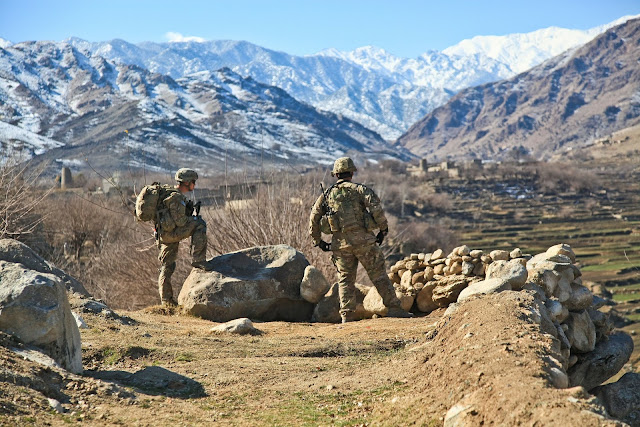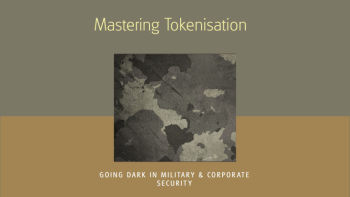Corona Pandemic, Afghanistan and the Peace Process
By Professor Ijaz Khan
Former Chairman, Department of International Relations, University of Peshawar, Pakistan.
Author of Pakistan’s Strategic Culture and Foreign Policy Making.
The Doha agreement between US and Taliban was hailed by some as a peace agreement, Taliban celebrated it as a victory, some including the US, called it the first step in a peace-making process, while a few considered it as the initiation of a more violent conflict within Afghanistan. The post agreement progression of events and controversies is strengthening the perception (right or wrong) of Taliban victory or more violence.
The Corona Pandemic has slowed or dampened all other concerns the World over, however in Afghanistan it has not dented to any significant level the conflicts and the challenges to peace. The Taliban massacred 35 Afghan soldiers just before the arrival of Mr. Pompeo who was neither able to resolve the Afghan presidential conflict nor make any progress towards initiation of the intra Afghan dialogue.
The US expressing displeasure over lack of progress in the initiation of Afghan Peace Process and the failure to resolve the Afghan Presidential controversy announced cutting of $ 1 billion from its aid to Afghanistan. Apparently under US pressure, the Afghan Government announced the release of 5000 Taliban prisoners and
named its negotiating team, however, Taliban responded by declaring the team as non-inclusive,
thus refused to talk with it and occupied of more territory. Though, the process for exchange of prisoners has started, the reluctance to compromise is very visible.
One very important factor of the continued violent conflict is attempts by outsiders, including but not only, its neighbours to use their influence inside Afghanistan to control it to the exclusion of others and the others countering those attempts. The internal strife and divisions aided by external overt and covert interventions have broken down the Afghan state and society to a level that it is not able to restore the internal balance, thus further facilitating external influences and intervention and a continued Civil War.
The weakness in US Afghan policy of its use of force or negotiations lies in not taking note of the need for internal and external balance. Coming quickly to the present, that is the Trump era, US policy has been even less educated by the geopolitics of Afghanistan or what may be termed as its strategic culture.
The conduct of negotiations with Taliban and the resultant deal shows that and has helped in further distorting the internal and external balance.
The US-Taliban negotiations and deal created certain perceptions (Correct or not) among many, both Afghans and non-Afghans; the US is in a hurry to leave, Taliban have won/are winning, the Afghan Government has become very weak and is about to collapse and finally Pakistan has gained tremendously. These perceptions, whether correct or not, are creating new and intensifying existing fault lines.
The perception, the US in a hurry coupled with the perception of Taliban victory, had hardened the Taliban during negotiations and is reflected in the deal too. This led to resumption of attacks on Government troops and an attempt to take Helmand. The US had to use air power to reduce the intensity of the attacks and protect Helmand. Their refusal to start intra Afghan dialogue unless 5000 Taliban are released, rejecting the offer of release of 1500, showed they don’t feel the urge to compromise. The going back of the Afghan Government on the Prisoners release has further strengthened the Taliban perception of victory. Their declaring the Government negotiating team as non-inclusive has furthered their confidence resulting in more attacks and territorial gains. For any negotiated settlement, readiness to compromise is a pre requisite. A balanced deal cannot result from perceptions of victory by one side, it can only be a surrender deal. The Taliban seems to be looking towards such a result of any intra Afghan Dialogue, if and when held.
The perception of Taliban victory and US hurry has resulted in the perception of weakness of the Afghan Government, which has intensified the existing differences among the non-Taliban Afghans, whether part of the Government or outside it. The inability of the Afghans to resolve the elections dispute themselves or through the help/intervention of the US at least partly is a result of this intensification. The international community’s recognition of President Ghani may bolster the Afghan Government, slightly lower the influence of such perception and its impact.
However, Secretary Pompeo’s statements after his recent visit and developments (mentioned above) has pulled the rug from under any, such strengthening Pakistan who feels it has achieved diplomatically a lot as a result of the whole process. Other interested states, specially India and also Iran cannot take that lightly. Their ability to influence the resulting situation, though limited is not absent.
Their resistance to the balance in Afghanistan tilting towards Pakistan to an uncomfortable level can and is intensifying existing tensions beyond the borders of Afghanistan; Pak India tensions including in Kashmir, Religious extremism in both India and Pakistan, as well as Shia Sunni sectarian conflict in
Afghanistan and Pakistan, even if not the exclusive result of the Afghan situation is definitely influenced by it.
Religious extremism and sectarianism will logically re kindle terrorism. Sectarian conflict will make Taliban find ways to go around honouring the requirement of break with Al Qaeda. These increased regional tensions will impact peace making inside Afghanistan to a deterministic level.
Pakistan needs to exercise self-restraint. The attendance of President Ashraf Ghani’s oath taking ceremony by Pakistan’s ambassador and PM Imran Khan’s felicitations to him and relaxing the closing of international borders due to the Corona Pandemic to let Cargo pass to Afghanistan are positive indicators, however, more symbolic and real actions will help Pakistan’s interests and peace.
The perception that Pakistan is happy with the peace deal is not due to its belief that it will help in peace but because it considers it vindication of its Afghan policy and considers it a Taliban victory, needs to be corrected.
Pakistan has to learn that a peaceful Afghanistan which is not harmful to its interests, cannot be an Afghanistan where regional balance of interests is lost, even if it appears to favour it momentarily. The US needs to back up its diplomatic efforts, with real on ground actions, to dispel the perceptions of hurry and defeat as well as a new perception of its abandoning the Afghan Government, if it wants to leave a peaceful Afghanistan, not a threat to its interests in the region and elsewhere.
However, the tragic Corona Pandemic that has taken away focus from Afghanistan, can be turned into an opportunity for peace and strengthen the role of Afghan people in their country’s affairs. Corona Pandemic may slow down diplomatic efforts in more than one way, but if the government supported by the international community tries to reach out to all Afghans, Taliban or non-Taliban without any conditions or considerations can help in weakening the barriers.
International diplomatic efforts should more focus on convincing all sides to not permit their continued conflict hinder internal or external efforts fighting the Corona challenge. If Mr. Pompeo had given more importance to this and made some headway, he would have achieved a lot. Pakistan can and should use its influence on Taliban and others to convince them to permit Government or non-Government organizations as well as other states, specially all regional states reaching out to control the Pandemic, should go unhindered. This can be a strong argument to convince all sides to cease hostilities for the duration. This can help create pressure on all sides to compromise and restore both internal and external balance, leading to peace.
About the Author
Professor Ijaz Khan is a Senior Managing Partner of Research for Peace, Democracy and Development in Peshwar, Pakistan and former Chair, Department of International Relations, University of Peshawar, Khyber Pakhtunkhwa, Pakistan. A member Human Right Commission of Pakistan. Author of “Pakistan’s Strategic Culture and Foreign Policy Making” as well as a Consultant / Researcher on issues of Security, Peace, Human Rights, Democratisation, Governance, Politics, Foreign Policy with reference to Pakistan, Afghanistan, Pashtuns & Newly Merged Districts of Khyber Pakhtunkhwa. He can be contacted at
[email protected] or via his blog at
https://ijazk.blogspot.com/









